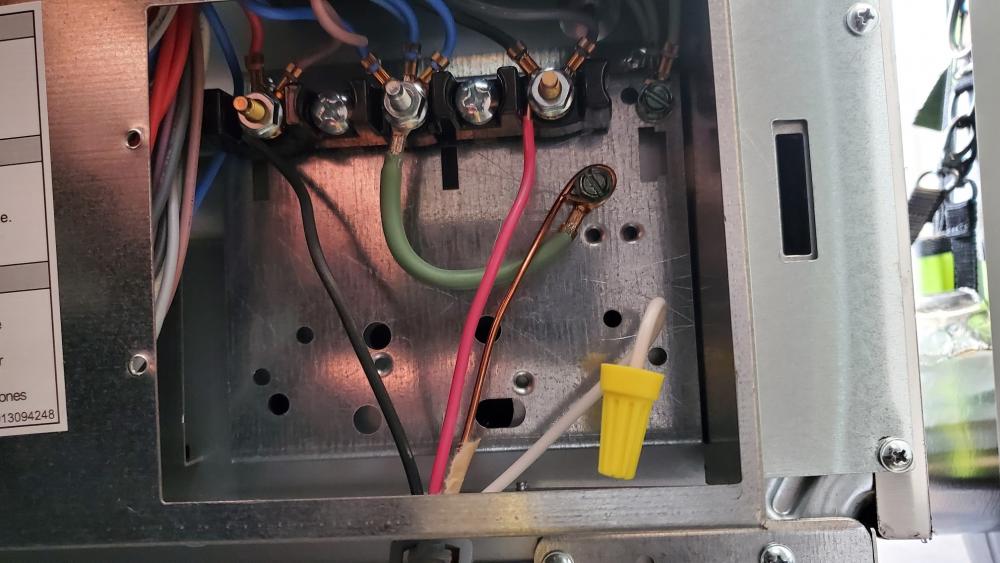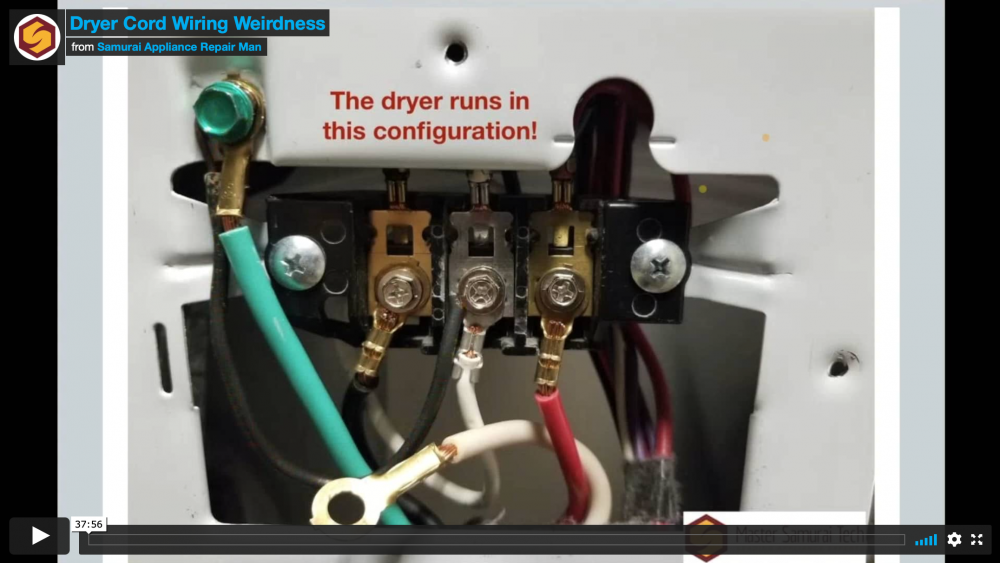Pop Quiz: What's Wrong with this Range Wiring?
You open up the terminal block on a Bosch range, and you see this. What's wrong with this picture? (Hint: those of you who have watched this webinar recording should know what's up).
A few questions for you sharp Appliantology techs:
- Will the machine run in this configuration?
- Why is it not okay to leave the machine in this configuration?
- Does this machine have a 3 or 4 wire power cord?
- How would you correct this situation?
Let me know your answers in the comments below!
Are you stumped, or do you want to learn more about this kind of misconfiguration and the problems it could cause? Watch the webinar recording below where we covered a very similar situation -- available only to premium members of Appliantology.
-
.png) 1
1
-
 1
1

.png.62a7d7300de75dfbd19764a318766630.png)




11 Comments
Recommended Comments